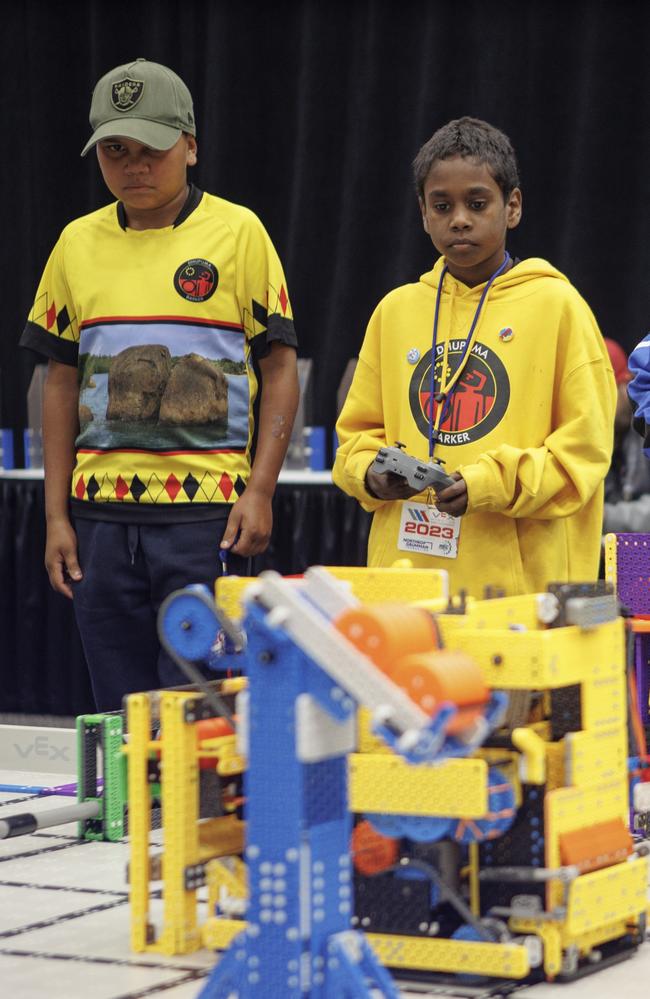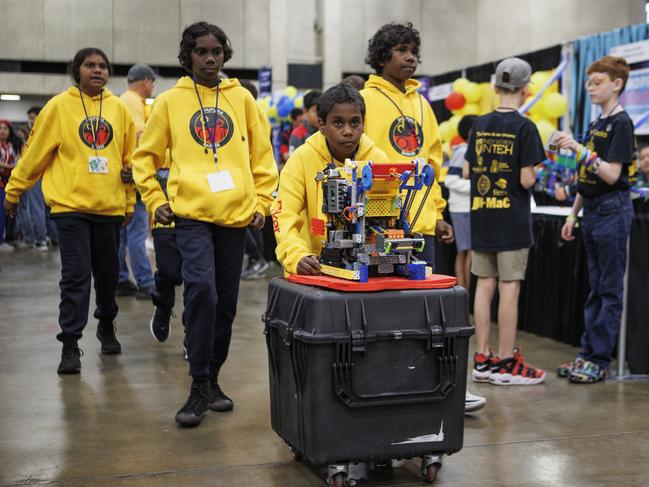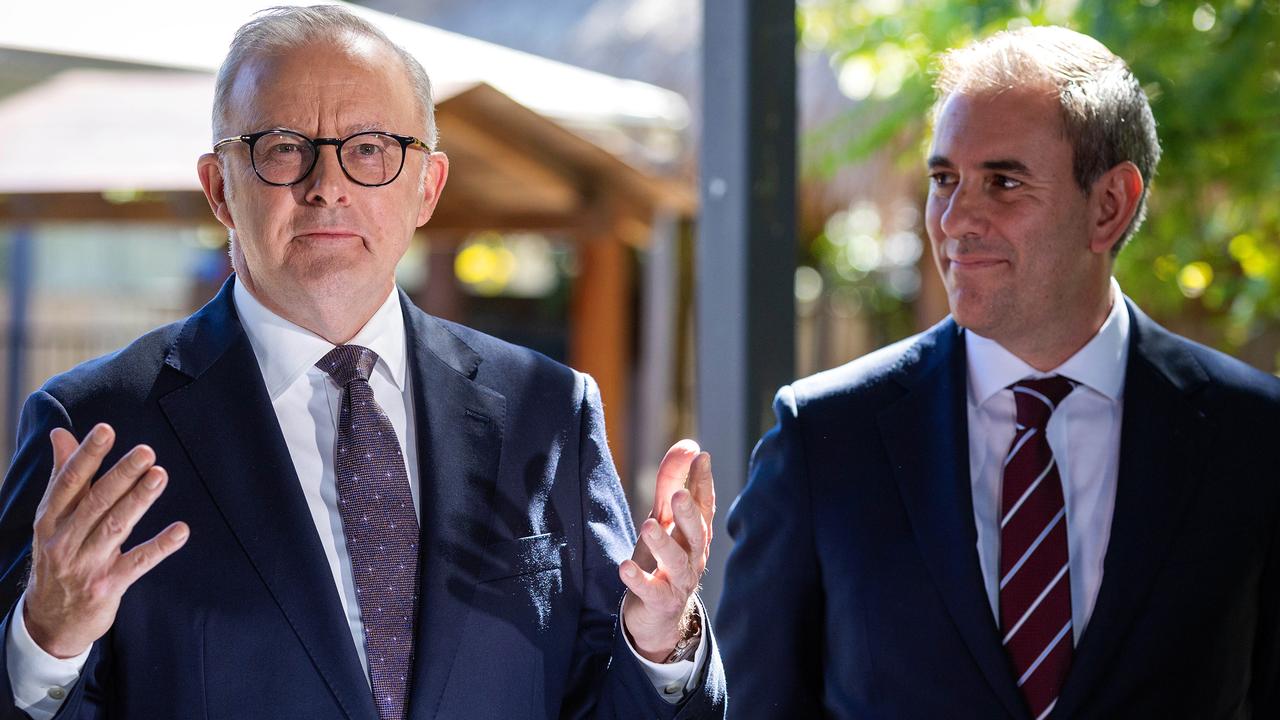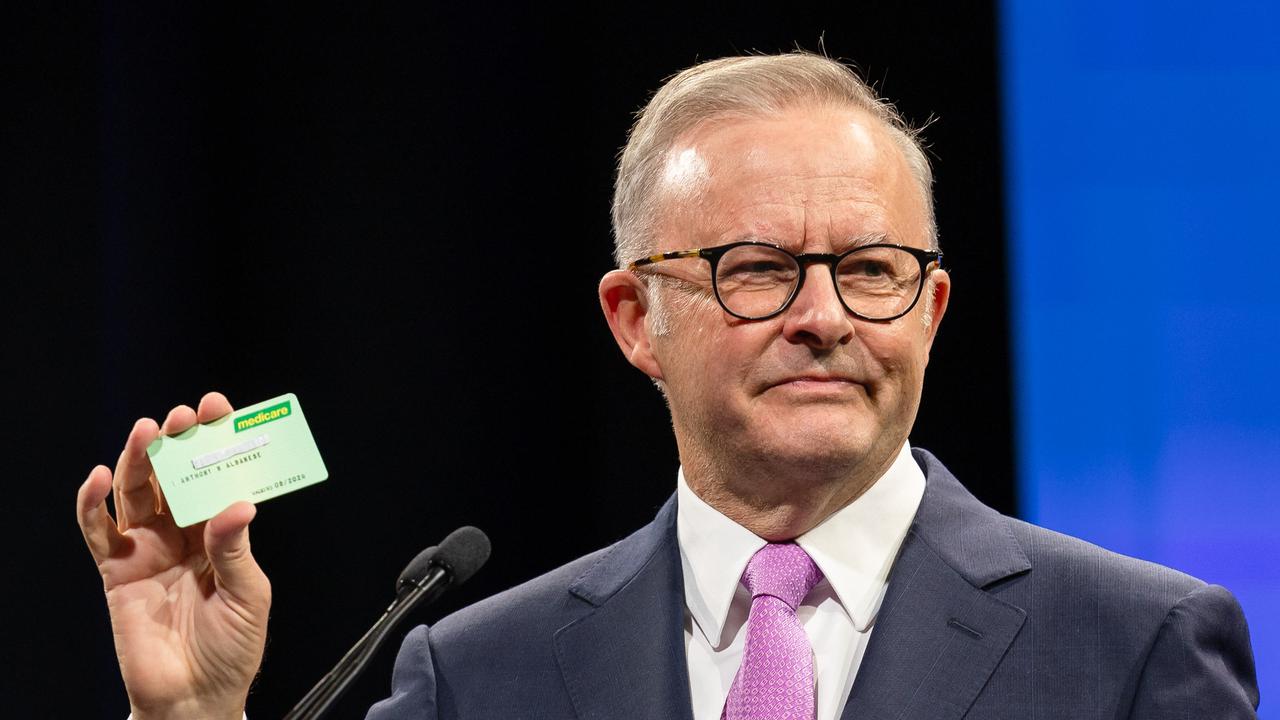Dhupuma-Barker students compete in the world’s biggest robotics competition
Amid all the bad news happening in the Territory, a group of students from a little school in a remote part of the NT was in Dallas competing on the world stage, writes Matt Cunningham
Opinion
Don't miss out on the headlines from Opinion. Followed categories will be added to My News.
There’s been no shortage of bad news in the Territory this year.
Barely a day seems to go by without another story of senseless violence that’s left most Territorians at a point of exasperation.
But a little story out of Texas last week might give us hope that there’s a chance for a brighter future.
It was there, in Dallas, that a group of kids from a tiny community in Northeast Arnhem Land took on the world‘s biggest robotics competition and did the Territory proud.
The Dhupuma-Barker Firebirds from tiny Gunyangara placed 40th among more than 800 competitors from 40 countries, including specialist robotics academies known to charge students up to $100,000 to attend.

It’s the latest significant achievement from a new school that in two short years has proved a different approach can provide very different outcomes for some of this country’s most disadvantaged children.
The Dhupuma-Barker school was opened at Gunyangara in April 2021.
Tired of seeing children disengage with the education system, the local Gumatj leaders and the Yothu Yindi Foundation sought a different way of learning focused on teaching Yolngu children the ways of the two worlds they would need to navigate in life.
The bilingual school blends the Australian curriculum with traditional Yolngu learning for the 35 students from transition to Year 6.
The results have been remarkable.
In many remote parts of the Northern Territory school attendance sits at less than 30 per cent. In some it’s as low as 10 per cent.
Last year Dhupuma-Barker achieved attendance rates of more than 90 per cent.
“The kids love it. They can’t run away from the school, they run to the school,” its chairman Murphy Yunupingu told me during a visit there last year.
Yunupingu said the community wasn’t able to win the support of the NT government when trying to establish the school.
“We went to the NT government and the NT government wouldn’t accept a small area here having its own school,” he said.
So they decided to tread their own path, with dramatic impact.

There are already plans to expand to secondary, and even tertiary education for Yolngu people on country.
But this magic formula wasn’t hard to discover.
The school is modelled on an educational institution from a bygone era that bore the same name and produced some similar results.
Dhupuma College was the breeding ground for some of this country’s most accomplished Aboriginal leaders, including Yunupingu and Yingiya Mark Guyula, a commercial pilot who is now a member of the Northern Territory Legislative Assembly.
For eight years between 1972 and 1980 Yolngu children thrived at Dhupuma.
But funding issues and competing political priorities had the college shut down.
It’s difficult in hindsight to see the wisdom of that decision.
In the past four decades the education of children in remote parts of the Northern Territory has been deteriorating.
We’re now seeing the results of this deterioration playing out on the streets of Darwin and Alice Springs.
Children who have disengaged from the education system are heading to our major centres and quickly finding trouble.
It’s clear a radically different approach is required.
And one of the answers might just lie at a little school in Northeast Arnhem Land.
There are some exceptional circumstances at Gunyangara, a proud place that has two things missing in many remote Aboriginal communities; strong local leadership and money.
But there are also some lessons from Dhupuma that could be adapted for other parts of the Territory.
Because this place is proof that there can be another way.
And that children from the world’s oldest living culture can more than hold their own in the modern world.
Matt Cunningham is the Sky News Darwin Bureau Chief and North Australia Correspondent



